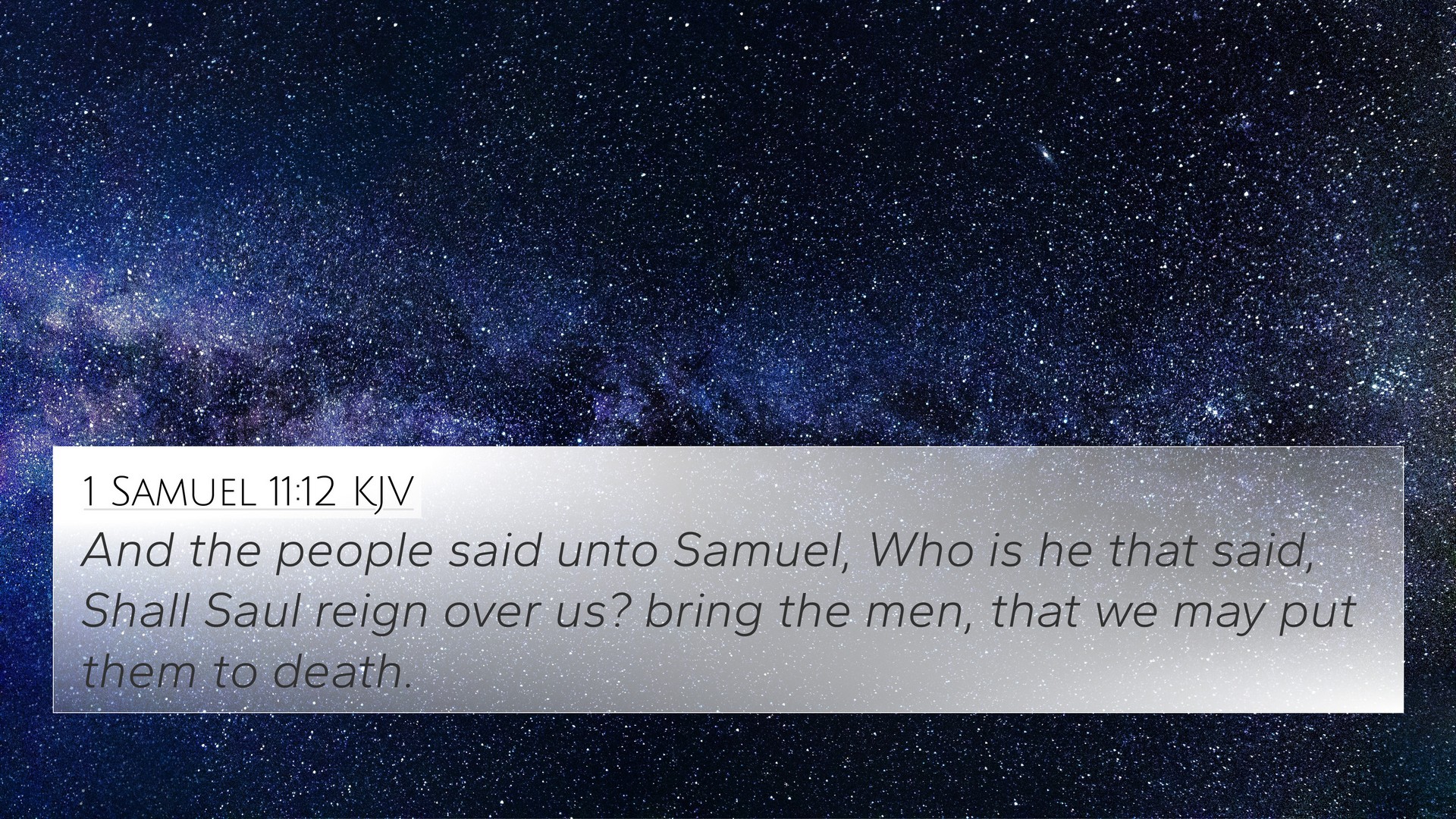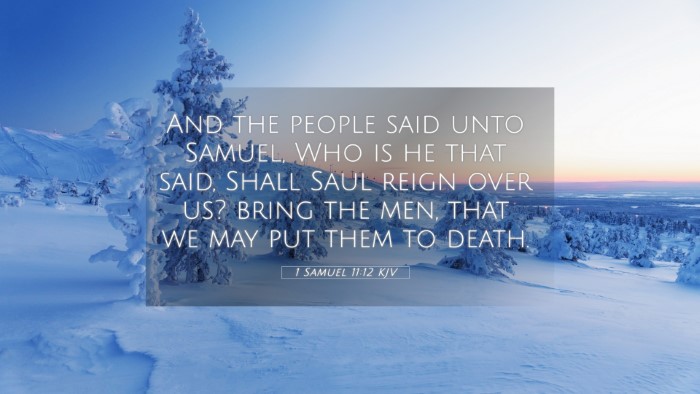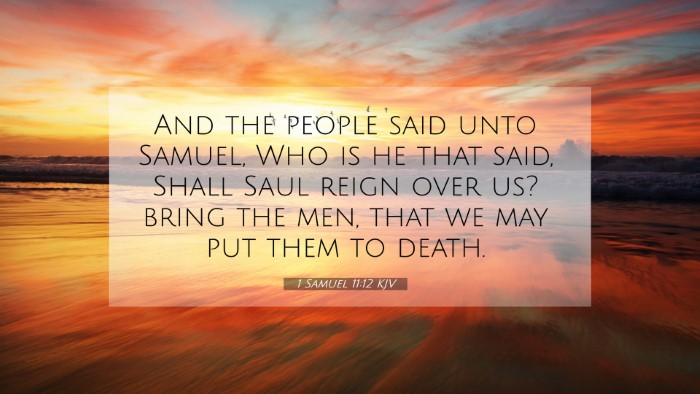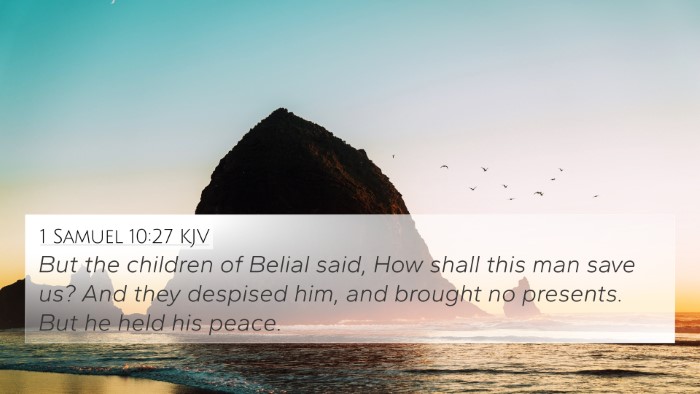Understanding 1 Samuel 11:12
Verse: 1 Samuel 11:12 - "And the people said unto Samuel, Who is he that said, Shall Saul reign over us? bring the men, that we may put them to death."
Summary of the Verse Meaning
This verse captures a pivotal moment in Israel's early monarchy, highlighting the people's response to Saul as king after a significant victory. It reflects the communal atmosphere and the process in which the nation of Israel began to accept Saul's leadership.
Contextual Analysis
Prior to this event, Israel was in turmoil, particularly from the threat of Nahash the Ammonite, which unified the tribes under Saul's leadership.
As the people rallied to assume a new identity under their king, they also confronted any dissenting voices. This segment emphasizes the need for unity and collective endorsement of Saul's kingship.
Insights from Public Domain Commentaries
-
Matthew Henry:
Henry elaborates on the significance of the people's declaration of loyalty toward Saul, contextualizing it within the wider narrative of kingship and divine providence. This loyalty was critical as it transformed Saul from anointed individual to the recognized ruler.
-
Albert Barnes:
Barnes discusses the pivotal decision of the people to support Saul and the implications of their actions. By seeking to punish those who opposed Saul's reign, they were affirming the new political structure and demanding unity against external threats.
-
Adam Clarke:
Clarke points out that the verse reflects a moment of transition for the Israelites, who, previously divided on the monarchy, were now compelled to rally around their king in gratitude for their deliverance.
Cross References
Several Bible verses provide additional insights and connections that enhance the understanding of 1 Samuel 11:12:
- 1 Samuel 8:5: Israel's demand for a king.
- 1 Samuel 9:15-16: Divine choice of Saul as king.
- 1 Samuel 10:27: Rejection of Saul by some people.
- 1 Samuel 12:12-15: Samuel’s address on the monarchy and loyalty to God.
- 1 Samuel 13:13-14: The transition of loyalty from Saul to David in the future.
- Judges 8:22-23: Israel's previous rejection of monarchy under Gideon.
- Psalm 105:15: Touch not my anointed ones; a reflection of God’s choice.
Thematic Connections with Other Scriptures
This verse not only provides commentary on Israel's evolving leadership structure but also has thematic connections to various Biblical principles:
- Leadership and Divine Authority: Explore the relationship between leaders and the God who appoints them, seen in Romans 13:1.
- Community and Unity: The importance of community consensus emanates from Acts 2:44-47, showcasing how early Christians acted as one.
- Rejecting Dissent: Similar to the narrative in Matthew 12:30 about gathering for or against a leader.
Tools for Bible Cross-Referencing
To further explore the connections between Bible verses, consider utilizing the following tools:
- Bible Concordance: A reference tool that lists words and their occurrences in the Bible.
- Bible Cross-Reference Guide: Compiled resources that link related scriptures for deeper study.
- Cross-Reference Bible Study: Techniques for engaging with multiple verses simultaneously to enhance understanding.
Conclusion
1 Samuel 11:12 serves as a significant turning point in the narrative of Israel’s history. Its implications concerning leadership, authority, and community underscore the complexities of the nation’s transition to monarchy. By cross-referencing relevant scriptures, readers can gain deeper insights into the themes of unity, authority, and divine approval that run through the biblical narrative.





